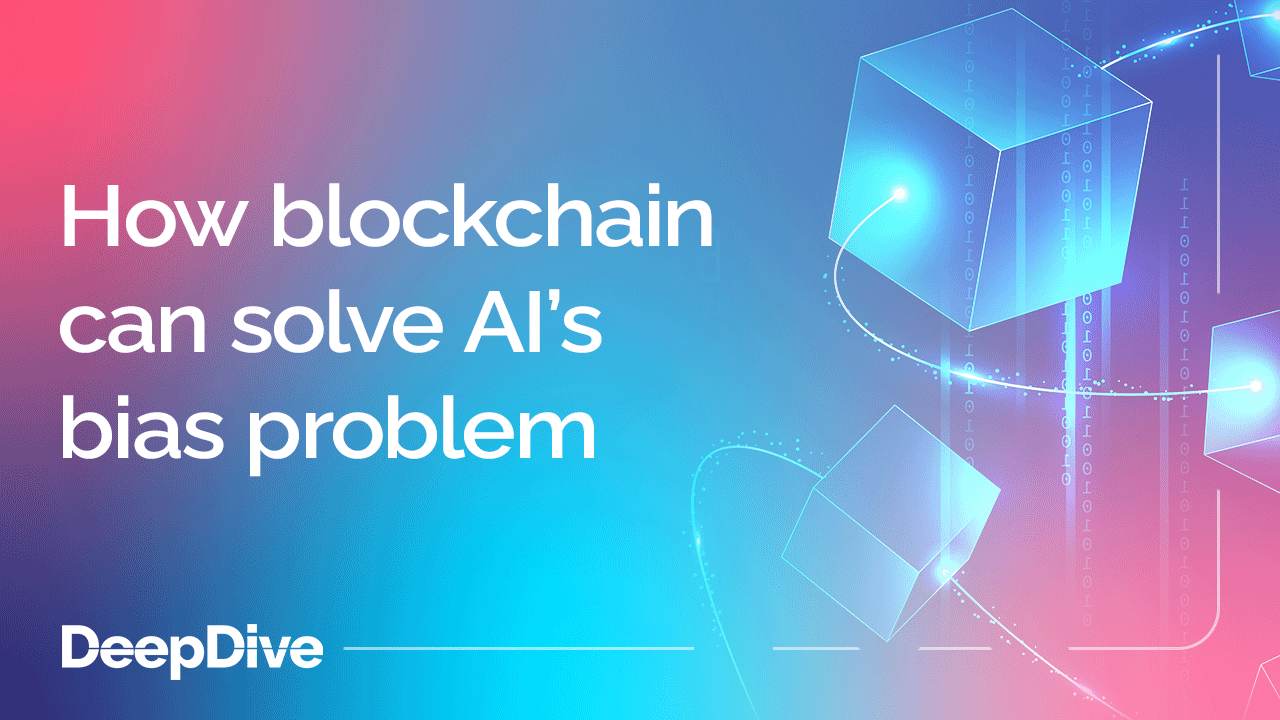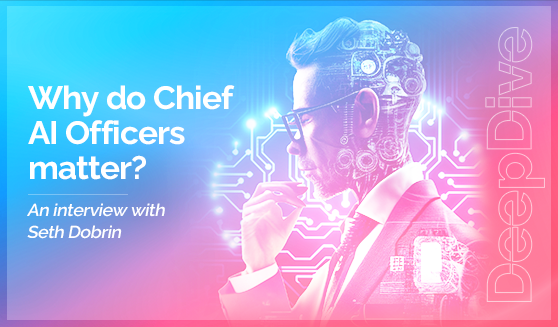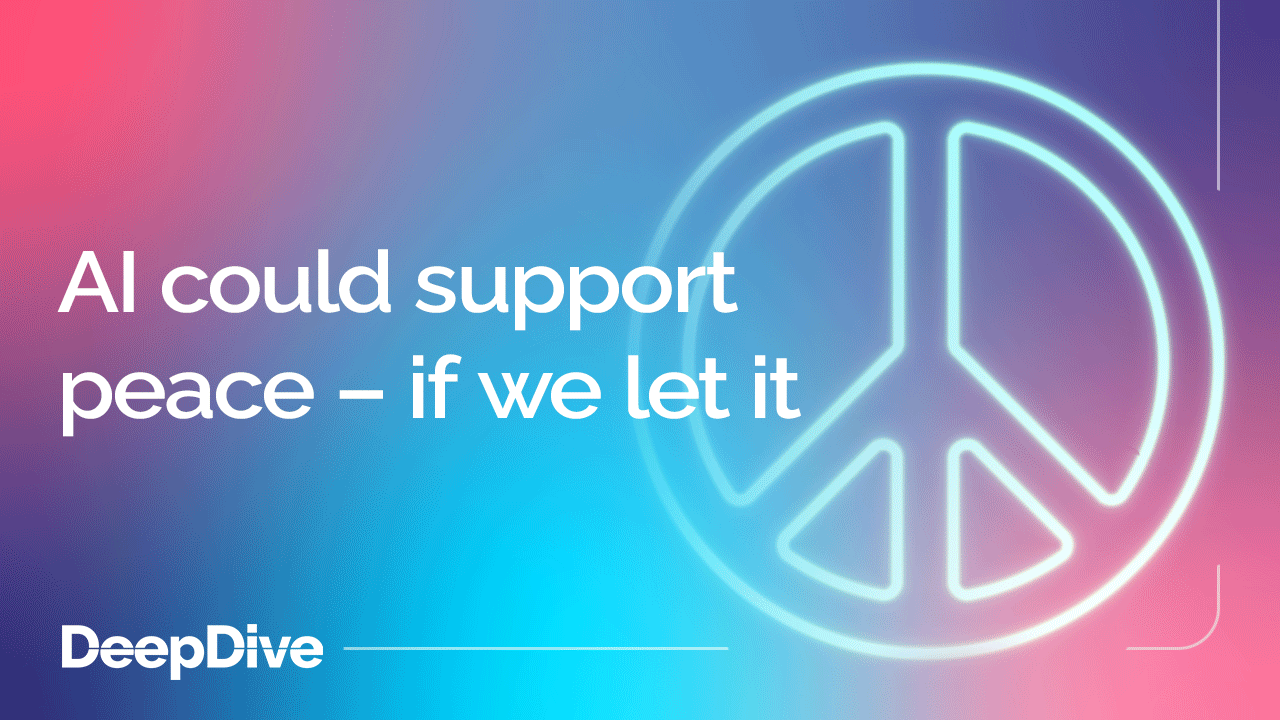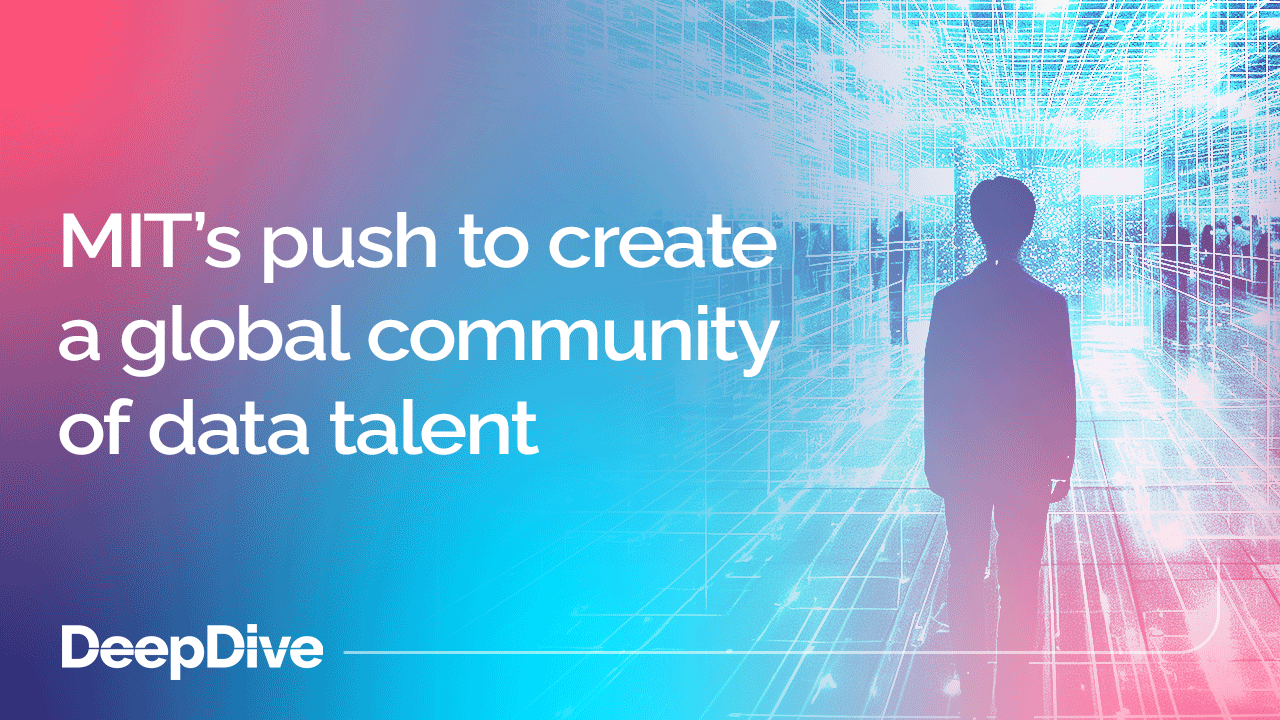

Why do Chief AI Officers matter?

Welcome to the 112 new deep divers who have joined us since last Wednesday. If you haven’t already, subscribe and join our community in receiving weekly AI insights, updates, and interviews with industry experts straight to your feed.
----------------------
DeepDive
Your weekly immersion in AI.
Dr. Seth Dobrin (Co-Founder and CEO at Dobrin Ventures) was IBM’s first ever Global Chief AI Officer. He has a strong track record for transforming businesses and leading them through major periods of change, and he’s known as a global leader in AI.
We caught up with Dobrin before he heads to Riyadh for DeepFest 2024. We wanted to find out how the role of Chief AI Officer has developed over the last year – and what it means to be a strategic AI leader in a rapidly changing landscape for tech and business.
Here’s what he told us.
The Chief AI Officer role is a relatively new one, and more and more companies are appointing AI leaders to help them understand and integrate AI into operations. What does the role mean to you?
“The Chief AI Officer role transcends traditional tech leadership. This position is a strategic cornerstone, integrating artificial intelligence into the heart of business operations and strategy.
“Over the past year, the role has evolved from aligning AI with business objectives to fostering a deep, organisation-wide AI integration. This shift demands a holistic approach where the Chief AI Officer is not just a technological implementer but a strategic visionary, cultural catalyst, and ethical guide.
“Critical aspects of the Chief AI Officer role include:
- Strategic AI Integration: Beyond aligning AI with business goals, the role involves embedding AI as a driver of innovation and growth. It's about ensuring AI initiatives are strategic assets, not just technological endeavours.
- Cultural Transformation: A core responsibility is fostering an AI-ready culture. This includes promoting innovation, ethical AI practices, and a company-wide enthusiasm for AI, which is essential for successful AI integration.
- Ethical AI Governance: Establishing governance frameworks to guide ethical AI development and use, focusing on data usage, model transparency, and algorithmic accountability, is crucial.
- Talent Development: Building a robust AI talent pool is vital. This involves attracting top AI talent and enhancing the existing workforce's capabilities to manage AI systems effectively.
- Efficient Resource Allocation: The Chief AI Officer ensures that AI projects align with business objectives, justifying technology and talent investments and demonstrating potential ROI.
- Change Management: Managing the skill gap, securing budgets, and handling resistance to change is essential for accelerating AI adoption and cultural shift within the organisation.
- Quantifying AI’s Business Impact: It’s vital to define objectives, establish metrics, and calculate ROI for AI initiatives, effectively communicating their business impact.
- Elevating AI Leadership: Positioning the Chief AI Officer at the executive level underscores AI’s strategic importance, ensuring AI initiatives are led with vision and oversight.
“The Chief AI Officer is pivotal in adopting AI and harnessing its transformative potential across the organisation.”
On a personal level, what have you learnt from AI?
“I'm often asked if we have reached the point where AI is sentient and, if not, when we will. This has caused me to reevaluate what it means to be ‘Human’. The Turing Test was surpassed at least two years ago – so how do we measure sentience, and what does that even mean?!
“What have I learned from this question? It has caused me to think deeply about what it means to be human outside the biological definition of being a Homo sapien. Humans are conscious and self-aware, emotional, community-driven, creative and expressive, have a view of morality and ethics, adapt and learn, quest for meaning and learning, immense diversity, and continually learn and grow.
“It has also made me realise that this is an existential question that can't be answered because the answers to whether or not an AI possesses any of the above are somewhat subjective and based on whether the AI has to have the defined trait, or if it just has to mimic the defined trait.”
What are the most exciting use cases you've seen for AI over the last six months or so?
“This is a really hard question to answer as there have been so many great use cases over the last years using GenAI and more traditional types of AI. I wrote an article laying out a few of my favourites: AI's craziest year.
If you could go back to the beginning of your career and tell yourself one thing you wish you'd known then, what would it be?
“I talk about this often when I mentor people earlier in their careers. I was not very deliberate about my career; opportunities arose — I took them; or not. While I turned out okay, I think it is important to be very deliberate in your career and understand where it is you want to go, being careful not to get fixated on a specific job at a specific company as that can lead to disappointment for reasons beyond your (and sometimes your bosses) control.”
Finally, why are events like DeepFest valuable to you?
“Conferences like DeepFest are valuable for so many reasons. First and foremost, I advocate strongly for diversity in tech and against technological colonialism. Having an event that brings together a large audience spanning the digital divide — North versus South of the equator — is one way we enable more inclusivity and bring to the foreground some of the things we as a community are doing correctly to prevent technological colonialism and where we need to do much better.”
Follow Seth Dobrin on LinkedIn – and learn more from him at DeepFest.
If you enjoyed this content and want to learn more about the latest in AI, subscribe to our YouTube channel, where we upload new videos every week featuring leading AI industry experts like Pascal Bornet (Chief Data Officer, Aera Technology), Cassie Kozyrkov (Chief Decision Scientist, Google), Betsy Greytok (Vice President, Ethics amp; Policy, IBM) and more at #DeepFest23. You can also register for DeepFest 2024.
We're getting closer to LEAP and DeepFest 2024. Download the LEAP and DeepFest app to receive live updates, network with other attendees, personalise your schedule and much more!





